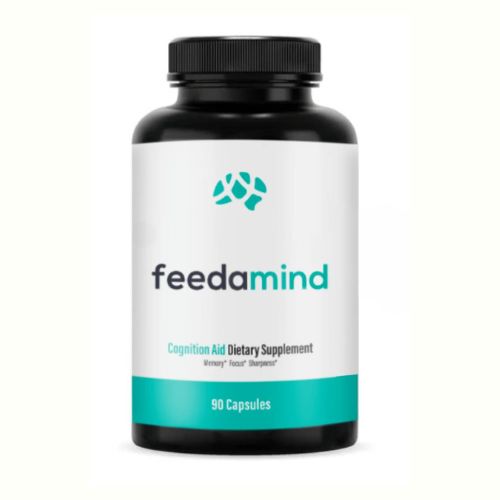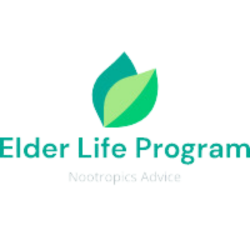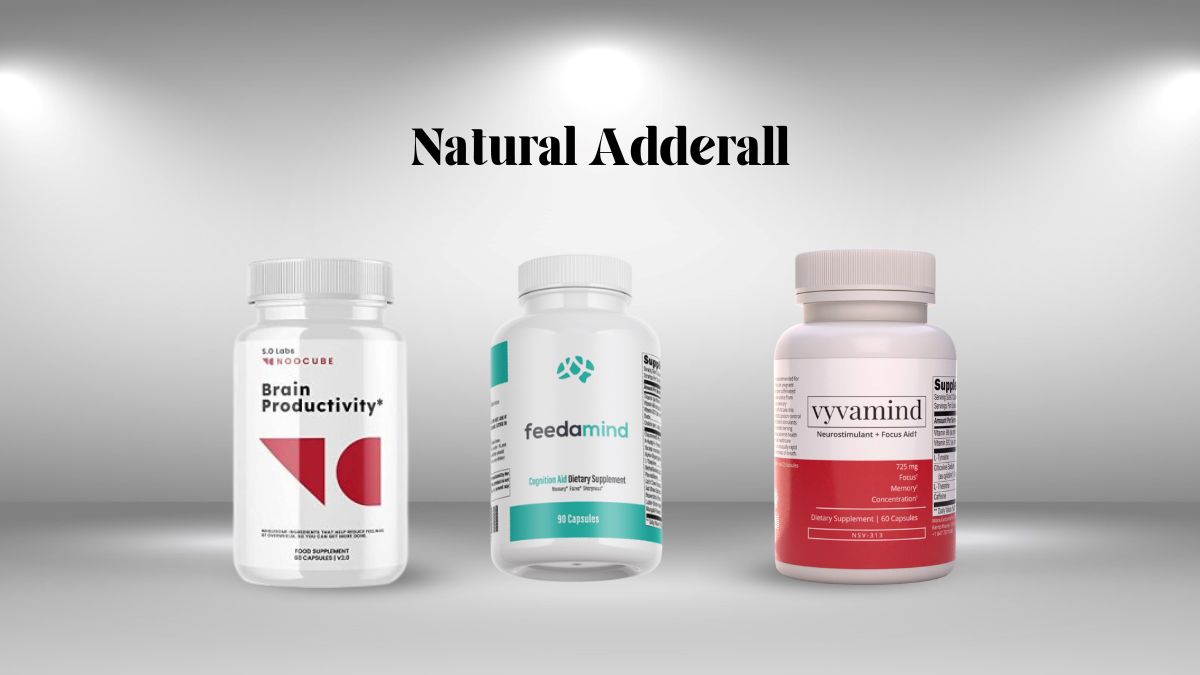Today, we're going to dive into a topic that's been buzzing around lately - natural alternatives to prescription Adderall medication. Now, I know what you're thinking, "Why would I need an alternative?" Well, let's get into it.
Adderall, as many of you may know, is a prescription drug commonly used for treating Attention Deficit Hyperactivity Disorder (ADHD), a condition affecting 3% to 6% of adults in the US. It works by enhancing neurotransmitters in the brain, which increases alertness and motivation. Sounds great, right? Well, not so fast. While it can be effective, it also has a potential for dependence and addiction, which is a significant concern.
Now, there are other prescription alternatives to Adderall, both stimulant and non-stimulant. Stimulant options include Ritalin, Concerta, Daytrana, Vyvanse, and Dexedrine, while non-stimulant options include Strattera, Intuniv, and Kapvay. These medications work differently but aim to improve ADHD symptoms. For instance, Ritalin and Concerta are effective stimulant treatments for ADHD, and Vyvanse improves focus and reduces impulsive and hyperactive behavior. Non-stimulant medications like Strattera, Intuniv, and Kapvay increase natural brain chemicals to improve mood and concentration without activating the central nervous system.
Why Feedamind is Ranked Number One in 'Best Natural Adderall Alternatives'
When it comes to 'best natural Adderall alternatives,' Feedamind is a brand that can't be ignored. With its scientifically-backed ingredient list, focus on wellness, and stellar ratings, here's why Feedamind deserves to be at the top of the list.
Comprehensive Formula With 16 Proven Ingredients
Feedamind offers a formula with 16 rigorously-researched ingredients, all tailored for optimal mental and physical performance. From traditional plant extracts like Bacopa Monnieri to modern compounds like alpha-GPC, the product covers a wide range of natural substances that can aid in cognitive performance and overall mental well-being.

Focus on ADHD Relief
Feedamind's composition targets the relief of ADHD symptoms, providing a safer alternative to traditional pharmaceuticals. Ingredients such as L-Theanine, Bacopa Monnieri, and L-Tyrosine work synergistically to improve focus and mood, which are particularly beneficial for individuals suffering from ADHD.
Balanced Mood & Stress Relief
In today's high-stress environment, Feedamind provides a formula designed to help relieve the effects of daily stress without any side effects. Ingredients like L-Theanine, derived from green tea, are known to have calming effects, stabilizing mood and reducing anxiety.
Versatility and Convenience
Feedamind is not just for those who are looking to replace medications like Adderall; it’s also great for the average person looking for an extra boost. Whether you're in the office, at the gym, or even just dealing with everyday life, Feedamind offers driven focus and a balanced mood.
Next up is Noocube. This brain-boosting supplement is designed to help maintain focus and energy. It contains a blend of beneficial ingredients like Alpha GPC, Bacopa Monnieri, L-Theanine, Ginkgo Biloba, and L-Tyrosine. These ingredients work together to increase acetylcholine levels, enhance neuron communication, relieve stress and anxiety, maintain the balance of neurotransmitters, and improve cognitive function.
However, Noocube also has its downsides. Some users have reported experiencing headaches, digestive issues, and mood swings. But remember, everyone's body reacts differently to supplements, so these side effects may not occur for everyone.
3. Case Study: Hunter Focus
Hunter Focus is a brain-boosting supplement that has been gaining popularity for its potent blend of natural ingredients. It works by enhancing cognitive functions, particularly memory, focus, and mental clarity. The supplement contains key ingredients like Lion's Mane Mushroom, Ashwagandha, and Citicoline, which are known for their brain-enhancing properties.
However, like all things, Hunter Focus has its pros and cons. On the upside, it's made from natural ingredients, has no known side effects, and is non-addictive. On the downside, it may take a few weeks to notice significant improvements, and it's a bit pricier compared to other supplements.
4. Case Study: Vyvamind
Vyvamind is currently the top-rated natural alternative to Adderall. It's a potent supplement that works by increasing the production of acetylcholine and dopamine, which are essential for cognitive functions and motivation. Vyvamind contains a blend of natural ingredients like Alpha GPC, Bacopa Monnieri, L-Theanine, and Ginkgo Biloba.
The pros of Vyvamind include its potency, reliability, and safety. It's also non-addictive and doesn't have the side effects associated with prescription drugs. However, it's not suitable for everyone, especially those with certain medical conditions or those taking other medications. Always consult with a healthcare professional before starting any new supplement.
5. Case Study: Nooceptin
Nooceptin is another natural Adderall substitute that supports motivation and cognitive functions. It contains a blend of natural ingredients like L-Tyrosine, Ginkgo Biloba, and Huperzine A.
The pros of Nooceptin include its ability to enhance cognitive functions, improve mood, and reduce stress. It's also non-addictive and made from natural ingredients. However, similar to other supplements, it may not work for everyone, and it's always best to consult with a healthcare professional before starting any new supplement.
V. Key Ingredients in Natural Adderall Alternatives:
The key nutrients in these natural Adderall alternatives contribute significantly to brain health. Alpha GPC, for instance, increases acetylcholine levels, enhancing neuron communication and cognitive function. Bacopa Monnieri is known for its ability to relieve stress and anxiety, while L-Theanine and L-Tyrosine help maintain the balance of neurotransmitters in the brain. Ginkgo Biloba, on the other hand, improves blood flow to the brain, enhancing cognitive function and memory.
VI. Over-the-Counter Alternatives:
Over-the-counter alternatives for managing ADHD symptoms include Alpha GPC, Bacopa monnieri, L-Theanine, L-Tyrosine, Ginkgo Biloba, Huperzine A, Phosphatidylserine, and Rhodiola Rosea. These substances work by increasing acetylcholine levels, enhancing neuron communication, relieving stress and anxiety, maintaining balance of neurotransmitters, and improving cognitive function. They are generally safe to use but should be taken under the guidance of a healthcare professional.
VII. Conclusion:
In conclusion, there are several natural and over-the-counter alternatives to Adderall that can help manage ADHD symptoms. These include brain-boosting supplements like Vyvamind, Noocube, Nooceptin, Mind Lab Pro, and Hunter Focus, as well as key nutrients like Alpha GPC, Bacopa Monnieri, L-Theanine, Ginkgo Biloba, and L-Tyrosine.
These alternatives offer a safer and non-addictive way to enhance cognitive functions, improve mood, and reduce stress. However, it's important to remember that they may not work for everyone, and it's always best to consult with a healthcare professional before starting any new supplement.
If you're someone who struggles with focus, energy, or ADHD symptoms, these natural and over-the-counter alternatives might be worth considering. They offer a potential solution that's not only effective but also promotes overall brain health.


0 comments